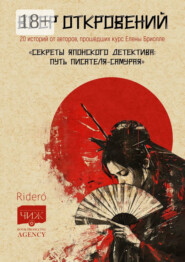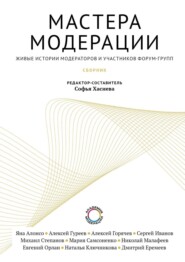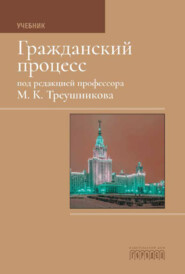По всем вопросам обращайтесь на: info@litportal.ru
(©) 2003-2024.
✖
International Short Stories: French
Настройки чтения
Размер шрифта
Высота строк
Поля
I had reason to be content with my dividend; since, having determined to keep back the third part of what I recovered in my rounds, and afterward touching another fourth of the remainder, then half of the whole, if arithmetic is anything more than a deception, would become my perquisite. This inspired me with new zeal for my profession.
The next day, as soon as I had dined, I resumed my medical paraphernalia and took the field once more. I visited several patients on the list, and treated their several complaints in one invariable routine. Hitherto things had gone well, and no one, thank Heaven, had risen up in rebellion against my prescriptions. But let a physician's cures be as extraordinary as they will, some quack or other is always ready to rip up his reputation.
I was called in to a grocer's son in a dropsy. Whom should I find there before me but a little black-looking physician, by name Dr. Cuchillo, introduced by a relation of the family. I bowed round most profoundly, but dipped lowest to the personage whom I took to have been invited to a consultation with me.
He returned my compliment with a distant air; then, having stared me in the face for a few seconds, "Sir," said he, "I beg pardon for being inquisitive; I thought I was acquainted with all my brethren in Valladolid, but I confess your physiognomy is altogether new. You must have been settled but a short time in town."
I avowed myself a young practitioner, acting as yet under direction of Dr.
Sangrado.
"I wish you joy," replied he politely; "you are studying under a great man. You must doubtless have seen a vast deal of sound practise, young as you appear to be."
He spoke this with so easy an assurance that I was at a loss whether he meant it seriously, or was laughing at me. While I was conning over my reply, the grocer, seizing on the opportunity, said:
"Gentlemen, I am persuaded of your both being perfectly competent in your art; have the goodness without ado to take the case in hand, and devise some effectual means for the restoration of my son's health."
Thereupon the little pulse-counter set himself about reviewing the patient's situation; and after having dilated to me on all the symptoms, asked me what I thought the fittest method of treatment.
"I am of opinion," replied I, "that he should be bled once a day, and drink as much warm water as he can swallow."
At these words, our diminutive doctor said to me, with a malicious simper,
"And so you think such a course will save the patient?"
"Not a doubt of it," exclaimed I in a confident tone; "it must produce that effect, because it is a certain method of cure for all distempers. Ask Señor Sangrado."
"At that rate," retorted he, "Celsus is altogether in the wrong; for he contends that the readiest way to cure a dropsical subject is to let him almost die of hunger and thirst."
"Oh, as for Celsus," interrupted I, "he is no oracle of mine; he is as fallible as the meanest of us; I often have occasion to bless myself for going contrary to his dogmas."
"I discover by your language," said Cuchillo, "the safe and sure method of practise Dr. Sangrado instils into his pupils! Bleeding and drenching are the extent of his resources. No wonder so many worthy people are cut off under his direction!"
"No defamation!" interrupted I, with some acrimony. "A member of the faculty had better not begin throwing stones. Come, come, my learned doctor, patients can get to the other world without bleeding and warm water; and I question whether the most deadly of us has ever signed more passports than yourself. If you have any crow to pluck with Señor Sangrado, publish an attack on him; he will answer you, and we shall soon see who will have the best of the battle."
"By all the saints in the calendar," swore he in a transport of passion, "you little know whom you are talking to! I have a tongue and a fist, my friend; and am not afraid of Sangrado, who with all his arrogance and affectation is but a ninny."
The size of the little death-dealer made me hold his anger cheap. I gave him a sharp retort; he sent back as good as I brought, till at last we came to fisticuffs. We had pulled a few handfuls of hair from each other's head before the grocer and his kinsman could part us. When they had brought this about, they feed me for my attendance and retained my antagonist, whom they thought the more skilful of the two.
Another adventure succeeded close on the heels of this. I went to see a huge singer in a fever. As soon as he heard me talk of warm water, he showed himself so adverse to this specific as to fall into a fit of swearing. He abused me in all possible shapes, and threatened to throw me out of the window. I was in a greater hurry to get out of his house than to get in.
I did not choose to see any more patients that day, and repaired to the inn where I had agreed to meet Fabricio. He was there first. As we found ourselves in a tippling humor, we drank hard, and returned to our employers in a pretty pickle; that is to say, so-so in the upper story. Señor Sangrado was not aware of my being drunk, because he took the lively gestures which accompanied the relation of my quarrel with the little doctor for an effect of the agitation not yet subsided after the battle. Besides, he came in for his share in my report; and, feeling himself nettled by the insults of Cuchillo —
"You have done well, Gil Blas," said he, "to defend the character of our practise against this little abortion of the faculty. So he takes upon him to set his face against watery drenches in dropsical cases? An ignorant fellow! I maintain, I do, in my own person, that the use of them may be reconciled to the best theories. Yes, water is a cure for all sorts of dropsies, just as it is good for rheumatisms and the green sickness. It is excellent, too, in those fevers where the effect is at once to parch and to chill; and even miraculous in those disorders ascribed to cold, thin, phlegmatic, and pituitous humors. This opinion may appear strange to young practitioners like Cuchillo, but it is right orthodox in the best and soundest systems; so that if persons of that description were capable of taking a philosophical view, instead of crying me down, they would become my most zealous advocates."
In his rage, he never suspected me of drinking; for to exasperate him still more against the little doctor, I had thrown into my recital some circumstances of my own addition. Yet, engrossed as he was by what I had told him, he could not help taking notice that I drank more water than usual that evening.
In fact, the wine had made me very thirsty. Any one but Sangrado would have distrusted my being so very dry as to swallow down glass after glass; but, as for him, he took it for granted in the simplicity of his heart that I had begun to acquire a relish for aqueous potations.
"Apparently, Gil Blas," said he, with a gracious smile, "you have no longer such a dislike to water. As Heaven is my judge, you quaff it off like nectar! It is no wonder, my friend; I was certain you would before long take a liking to that liquor."
"Sir," replied I, "there is a tide in the affairs of men; with my present lights I would give all the wine in Valladolid for a pint of water."
This answer delighted the doctor, who would not lose so fine an opportunity of expatiating on the excellence of water. He undertook to ring the changes once more in its praise; not like a hireling pleader, but as an enthusiast in a most worthy cause.
"A thousand times," exclaimed he, "a thousand and a thousand times of greater value, as being more innocent than all our modern taverns, were those baths of ages past, whither the people went, not shamefully to squander their fortunes and expose their lives by swilling themselves with wine, but assembling there for the decent and economical amusement of drinking warm water. It is difficult to admire enough the patriotic forecast of those ancient politicians who established places of public resort where water was dealt out gratis to all comers, and who confined wine to the shops of the apothecaries, that its use might be prohibited save under the direction of physicians. What a stroke of wisdom! It is doubtless to preserve the seeds of that antique frugality, emblematic of the golden age, that persons are found to this day, like you and me, who drink nothing but water, and are persuaded they possess a prevention or a cure for every ailment, provided our warm water has never boiled; for I have observed that water when it is boiled is heavier, and sits less easily on the stomach."
While he was holding forth thus eloquently, I was in danger more than once of splitting my sides with laughing. But I contrived to keep my countenance; nay, more, to chime in with the doctor's theory. I found fault with the use of wine, and pitied mankind for having contracted an untoward relish for so pernicious a beverage. Then, finding my thirst not sufficiently allayed, I filled a large goblet with water, and, after having swilled it like a horse —
"Come, sir," said I to my master, "let us drink plentifully of this beneficial liquor. Let us make those early establishments of dilution you so much regret live again in your house."
He clapped his hands in ecstasy at these words, and preached to me for a whole hour about suffering no liquid but water to pass my lips. To confirm the habit, I promised to drink a large quantity every evening; and to keep my word with less violence to my private inclinations, I went to bed with a determined purpose of going to the tavern every day.
A FIGHT WITH A CANNON
BY VICTOR HUGO
La vieuville was suddenly cut short by a cry of despair, and a the same time a noise was heard wholly unlike any other sound. The cry and sounds came from within the vessel.
The captain and lieutenant rushed toward the gun-deck but could not get down. All the gunners were pouring up in dismay.
Something terrible had just happened.
One of the carronades of the battery, a twenty-four pounder, had broken loose.
This is the most dangerous accident that can possibly take place on shipboard. Nothing more terrible can happen to a sloop of was in open sea and under full sail.
A cannon that breaks its moorings suddenly becomes some strange, supernatural beast. It is a machine transformed into a monster. That short mass on wheels moves like a billiard-ball, rolls with the rolling of the ship, plunges with the pitching goes, comes, stops, seems to meditate, starts on its course again, shoots like an arrow from one end of the vessel to the other, whirls around, slips away, dodges, rears, bangs, crashes, kills, exterminates. It is a battering ram capriciously assaulting a wall. Add to this the fact that the ram is of metal, the wall of wood.
It is matter set free; one might say, this eternal slave was avenging itself; it seems as if the total depravity concealed in what we call inanimate things has escaped, and burst forth all of a sudden; it appears to lose patience, and to take a strange mysterious revenge; nothing more relentless than this wrath of the inanimate. This enraged lump leaps like a panther, it has the clumsiness of an elephant, the nimbleness of a mouse, the obstinacy of an ox, the uncertainty of the billows, the zigzag of the lightning, the deafness of the grave. It weighs ten thousand pounds, and it rebounds like a child's ball. It spins and then abruptly darts off at right angles.
And what is to be done? How put an end to it? A tempest ceases, a cyclone passes over, a wind dies down, a broken mast can be replaced, a leak can be stopped, a fire extinguished, but what will become of this enormous brute of bronze. How can it be captured? You can reason with a bulldog, astonish a bull, fascinate a boa, frighten a tiger, tame a lion; but you have no resource against this monster, a loose cannon. You can not kill it, it is dead; and at the same time it lives. It lives with a sinister life which comes to it from the infinite. The deck beneath it gives it full swing. It is moved by the ship, which is moved by the sea, which is moved by the wind. This destroyer is a toy. The ship, the waves, the winds, all play with it, hence its frightful animation. What is to be done with this apparatus? How fetter this stupendous engine of destruction? How anticipate its comings and goings, its returns, its stops, its shocks? Any one of its blows on the side of the ship may stave it in. How foretell its frightful meanderings? It is dealing with a projectile, which alters its mind, which seems to have ideas, and changes its direction every instant. How check the course of what must be avoided? The horrible cannon struggles, advances, backs, strikes right, strikes left, retreats, passes by, disconcerts expectation, grinds up obstacles, crushes men like flies. All the terror of the situation is in the fluctuations of the flooring. How fight an inclined plane subject to caprices? The ship has, so to speak, in its belly, an imprisoned thunderstorm, striving to escape; something like a thunderbolt rumbling above an earthquake.
In an instant the whole crew was on foot. It was the fault of the gun captain, who had neglected to fasten the screw-nut of the mooring-chain, and had insecurely clogged the four wheels of the gun carriage; this gave play to the sole and the framework, separated the two platforms, and the breeching. The tackle had given way, so that the cannon was no longer firm on its carriage. The stationary breeching, which prevents recoil, was not in use at this time. A heavy sea struck the port, the carronade, insecurely fastened, had recoiled and broken its chain, and began its terrible course over the deck.
To form an idea of this strange sliding, let one imagine a drop of water running over a glass.
At the moment when the fastenings gave way, the gunners were in the battery, some in groups, others scattered about, busied with the customary work among sailors getting ready for a signal for action. The carronade, hurled forward by the pitching of the vessel, made a gap in this crowd of men and crushed four at the first blow; then sliding back and shot out again as the ship rolled, it cut in two a fifth unfortunate, and knocked a piece of the battery against the larboard side with such force as to unship it. This caused the cry of distress just heard. All the men rushed to the companion-way. The gun-deck was vacated in a twinkling.
The enormous gun was left alone. It was given up to itself. It was its own master and master of the ship. It could do what it pleased. This whole crew, accustomed to laugh in time of battle, now trembled. To describe the terror is impossible.
Captain Boisberthelot and Lieutenant la Vieuville, although both dauntless men, stopped at the head of the companion-way and, dumb, pale, and hesitating, looked down on the deck below. Some one elbowed past and went down.
It was their passenger, the peasant, the man of whom they had just been speaking a moment before.
Reaching the foot of the companion-way, he stopped.
The cannon was rushing back and forth on the deck. One might have supposed it to be the living chariot of the Apocalypse. The marine lantern swinging overhead added a dizzy shifting of light and shade to the picture. The form of the cannon disappeared in the violence of its course, and it looked now black in the light, now mysteriously white in the darkness.

















